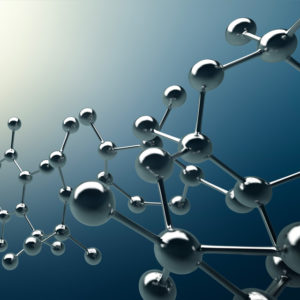Rheology
Home » Our Techniques » Physical/Chemical Characterization » Rheology
Rheology is the study of flowing liquids or viscous materials. As such, it covers properties related to the flow behavior of liquids and the temporary and/or permanent deformation of (semi-) solid materials. These are typically known as viscous, visco-elastic and elastic properties. These properties can be measured using a rheometer both in a static and/or a dynamic environment. Typical factors affecting these properties can be external forces, temperature, duration of stress, creep and chemical changes in a material (e.g. curing, chemical-aging).
Rheological studies can be used to perform process modeling, e.g. to mimic or optimize process conditions, such as in plastic (reaction) injection molding, 3D printing, or in the UV and thermal curing of adhesives. A rheometer measures material properties in rotary or oscillatory measurement mode in response to an applied force.
Various measurement configurations are possible, depending on the material or desired property to be measured. Common examples are cone-plate, plate-plate and cylinder-cup configurations. Software is used to accommodate these different measurement configurations, and calculations are done to derive the physical properties of interest.

Ideal Uses of Rheology
- Viscosity and visco-elastic measurements of chemicals, oils, printing inks, lubricants, personal care products (e.g. toothpaste, lotions), food and beverages (e.g. dairy products)
- Shear and loss modulus measurements of plastics (after initial melting)
- Adhesives: Curing behavior – monitoring the transition of a fluid to a (semi-) solid
- Thermal properties: Glass transition, Tg, melting temperature and coefficient of thermal expansion (CTE) of plastics
Strengths
- Highly versatile: many different properties can be measured
- The technique is suited for many different samples of various sources and in a large variety of physical states
Limitations
- Careful experimental design and set-up is extremely important in order to avoid erroneous results
- Not suited for very hard materials such as stone (> 10 GPa)
Rheology Technical Specifications
- Acquired data: Axial position, force
- Accuracy: dependent on the material type and the particular property under investigation
- Sample type & requirements: Fluids, semi-solids up to few GPa of stiffness/hardness
- Temperature: Dependent on heating accessory – ranging from -160°C to 600°C
- Minimum sample volume: Dependent on accessory/geometry: ~ 2.5 µl (with plate-plate of 8 mm diameter) and 50 µm (sample layer thickness)
Would you like to learn more about using Rheology?
Contact us today for your Rheology needs. Please complete the form below to have an EAG expert contact you.